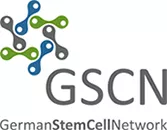Elke Luger: A straightforward regulatory framework is also crucial for international investors, who want to provide funding swiftly for these very current, technical procedures. If this process is so cumbersome in Germany, with such differences between the legislation of different federal states, it is easier to invest venture capital in France or Italy – where there is only one law in force nationwide.
GSCN: How can we change these regulations and bureaucratic processes in Germany?
Elke Luger: We obviously cannot abolish federalism. However, one aim of the National Strategy for Gene and Cell Therapies is to draw up guidelines upon which the individual German states can base their legislation.
Claudia Waskow: One approach would also be to cooperate with the relevant groups in the German Research Foundation (DFG).
Daniel Besser: The problem is more far-reaching: in Germany, companies must obtain authorization to manufacture cell and gene products from the state authorities and not just the Paul Ehrlich Institute (PEI) or the European Medicines Agency (EMA). The result is regulatory demands from two sides – the state authorities and the EMA – and these demands often do not coincide. We should strive to find common ideas and regulations.
GSCN: How will researchers benefit from the National Strategy for Cell and Gene Therapies? How can they get involved?
Elke Luger: They were invited to contribute to the development and drafting process, where the aim was to highlight deficits and propose solutions to move the whole topic forward. However, we want to continue to uphold and leverage this spirit of cooperation in the Network Office for GCT. We see ourselves as a platform for GCT-related communication, information, cooperation matching and events. We also want to provide information on how to secure funding and on future funding lines, both in Germany and across Europe. This is crucial for researchers; we see it as our duty. We also provide support in the scientific advice process. At present, we are setting up a regulatory support unit that will offer help with initial interactions with the Paul Ehrlich Institute.
Daniel Besser: For one thing, scientists are helping shape the strategy process, which is important. As soon as a financial structure for the strategy has been established, researchers who are already well informed will have a good chance of getting their projects funded, subject to a successful review. The distribution of funds must be – and will be – transparent.
In terms of regulation, I think it is very important that start-ups and developers are supported and offered assistance with less directly connected topics, such as human resources and intellectual property (IP). Where can I find the right people to facilitate certain things, such as GMP (Good Medical Practice) facilities? How should I protect my intellectual property? What support do I need when it comes to sponsors and legal matters? We have to offer support on these issues – nationwide!
Elke Luger: I agree. Researchers also need to broaden their horizons. To date, publications have been the currency of scientific impact.
